On its own, where you live isn't enough to make you depressed. Personal circumstances and genes also play an important role inmental health, so an area that feels like a downer to one person may be home sweet home to another. Like the many other rural southern states on this list, Arkansas consistently ranks among the worst in the nation on several measures of mental health, especially among young adults. Like many of its neighbors, this Rust Belt state has struggled with a sluggish economy, high unemployment, and massive budget shortfalls. And the financial trouble seems to be having a direct impact on mental health care for Hoosiers. Rates of depression and other mental-health problems are higher than the national average throughout the mountainous and sparsely settled region known as Appalachia. They are higher still in the coal-mining areas of central Appalachia, which includes most of eastern Kentucky. Few states have been as battered by the economic downturn as Michigan. With unemployment as high as 20% in some counties, it's not surprising that residents might be feeling distressed. The poorest state in the U.S., Mississippi ranks at or near the bottom on many health measures, from obesity to heart disease. Mental health is no exception. The state has the highest rate of depression in the nation (14.8%), according to the Centers for Disease Control and Prevention (CDC), and it has the third-highest rate of frequent mental distress (13.5%). Missouri isn't at the bottom of the barrel in any one measure of mental health, but it gets very low marks in several areas, including the rate of serious psychological distress (13%). For out-of-state visitors, Nevada often evokes images of gambling, partying, skiing, and other carefree diversions. For those who live there, the reality is often quite different. Nevada has high rates of mental distress, and, at last count, about 1 in 11 residents had experienced at least one episode of major depression in the previous year. Maybe it's the flat, barren landscape and threat of severe weather; maybe it's the high poverty rate (16%) and low rates of health-insurance coverage. For whatever reason, the Sooner State ranks in the bottom five of every category we considered. It may not be a coincidence that Memphis and Nashville are famous, respectively, for their blues and heartsick country music. By one measure, Tennessee is the unhappiest state in the union: Nearly 10% of residents have experienced an episode of major depression in the previous year. The Mountain State is ranked last or next-to-last in every mental-health category on our list, including the average number of "mentally unhealthy" days residents have per month and the percentage of people who experience frequent mental distress (15%).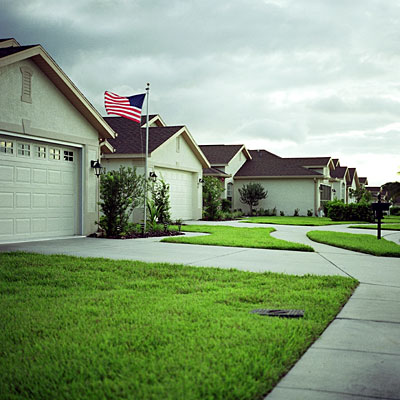
States of mind
That said, mental distress is unusually and persistently common in some states, whether due to economic troubles, lack of access to health care, or other factors.
Using data from federal health agencies, Health.com has identified the 10 states with the highest rates of depression, psychological distress, and other indicators of poor mental health. Here they are, in alphabetical order.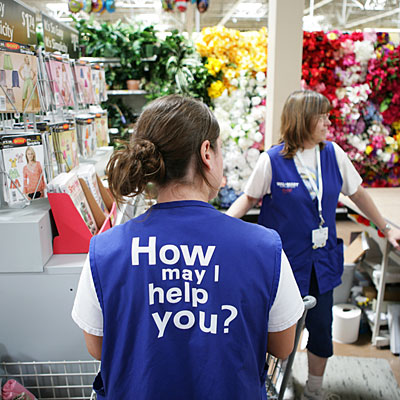
Arkansas
Young Arkansans have a dedicated advocate in their corner, however. The state's first lady, Ginger Beebe, has taken up mental health care for young people as a cause. In 2007, Beebe—who lost a son-in-law and a friend tosuicide—went on a "listening tour," in which she talked with families who have been affected by mental illness. "They have such courage and they go through so many struggles," Beebe told the Associated Press (AP).
Indiana
Due to budget pressures, many community mental-health centers have closed or downsized in recent years, and the state is facing a shortage of psychiatrists. "This is happening all over the country," Indiana University psychiatrist Alan Schmetzer, MD, told theSouth Bend Tribune in 2010. "(But) the Midwest in particular is very short of psychiatrists."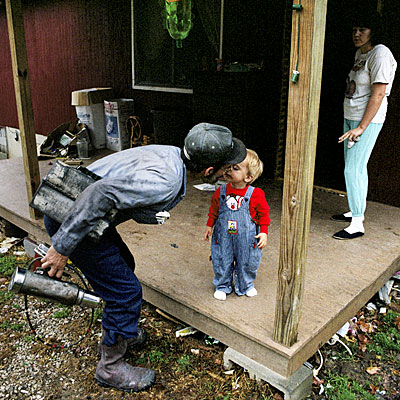
Kentucky
Poor mental health in Kentucky is part of a constellation of social problems that includes high joblessness and drug abuse. "When people don't have good jobs to support families, I think that leads to depression and anxiety, which in turn leads to substance abuse," Kentucky Governor Steve Beshear told the AP in 2008.
Michigan
The most recent government data, from 2009, may not even do justice to the true psychological fallout from the state's misfortunes. "When people are under those kinds of stresses, the need for mental health care escalates," the director of a state social-work organization told the Holland Sentinel in 2009. "What we're seeing, anecdotally, is an increase in the need for substance abuse services and depression."
Mississippi
Indeed, the state's many health problems may feed one another. "Depression can both precipitate and exacerbate the symptoms of a chronic disease," Lela McKnight-Eily, PhD, a clinical psychologist and epidemiologist at the CDC,told Health.com in 2010.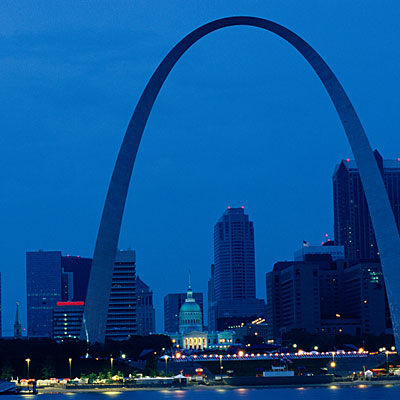
Missouri
Fortunately for residents, the Show-Me State has had a proactive approach to preventing and treating mental-health problems. In 2008 it began a pilot program to integrate primary care and mental health care, and it was the first state in the U.S. to implement Mental Health First Aid, a program that trains teachers, policemen, and other nonspecialists to recognize the symptoms of mental illness and offer help.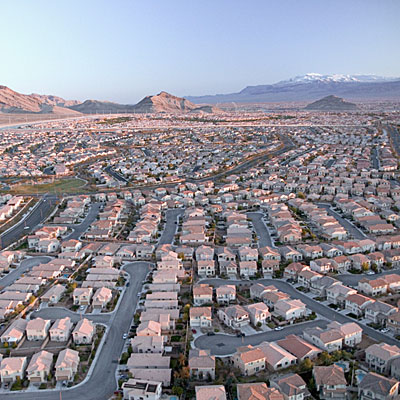
Nevada
These problems may get worse before they get better. Nevada has been especially hard hit by the financial crisis, and thanks to the poor economy and declining tax revenues, the state department that oversees mental-health services is facing budget cuts in the tens of millions of dollars.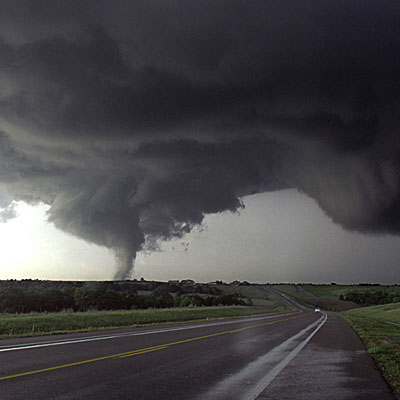
Oklahoma
Even the official state rock song is depressing. In 2009, the Oklahoma legislature bestowed that honor on "Do You Realize?" by the Flaming Lips; it's a dirge-like tune featuring lyrics such as "Do you realize that happiness makes you cry? Do you realize that everyone you know someday will die?"
Tennessee
Like Mississippi, Tennessee also has high rates of chronic diseases such as obesity anddiabetes, the stress of which can worsen depression. As many as 70% of Tennesseans who see a primary care physician for obesity, diabetes, orhypertension meet the criteria for depression, anxiety, or other mental disorders, the state's mental health commissioner has estimated.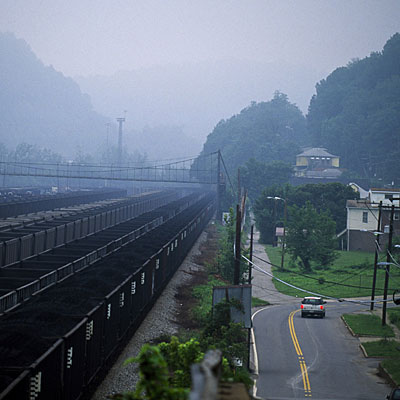
West Virginia
One reason may be that roughly two-thirds of West Virginians live in rural areas, where both steady jobs and access to mental health care can be hard to come by. A 2000 study found that while nearly 1 in 3 residents living in rural areas had "a high level" of depression symptoms, almost half had never been treated for the condition by any doctor, let alone a psychiatrist or mental-health specialist.
Labels:
24 hour fitness,
abdominal exercises,
bodybuilding exercise workouts,
diet plan and treadmills,
fitness workouts women and olders,
healthy foods
10 Most Depressing States in the U.S.
My Fitness For You
Tuesday, August 23, 2011
Subscribe to:
Post Comments (Atom)
Blog Archive
-
▼
2011
(525)
-
▼
August
(352)
-
▼
Aug 23
(16)
- Why does endometriosis make sex painful for women?
- How Much Exercise You REALLY Need
- Health Benefits of Omega-3s
- 11 Fresh Fruit and Veggie Recipes for Spring
- The Best Snack on Earth?
- Smart Recipes Never Tasted So Sweet
- Sweet benefits of basil
- 8 Real Fertility Facts You Need to Know
- Sweet Snacks: 3 Treats That Help Keep Cravings Und...
- The Key to Eating in Moderation: Know When Enough ...
- Would you feel comfortable with a male gynecologist?
- 10 tips for cooking healthy meals with kids
- Have you ever been shamed for using antidepressants?
- Seven myths about caffeine
- The Lady Killers: 9 Ways to never have a stroke
- 10 Most Depressing States in the U.S.
-
▼
Aug 23
(16)
-
▼
August
(352)







0 comments:
Post a Comment